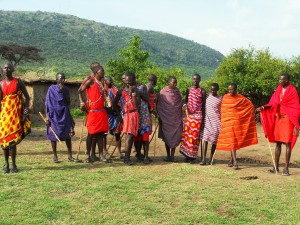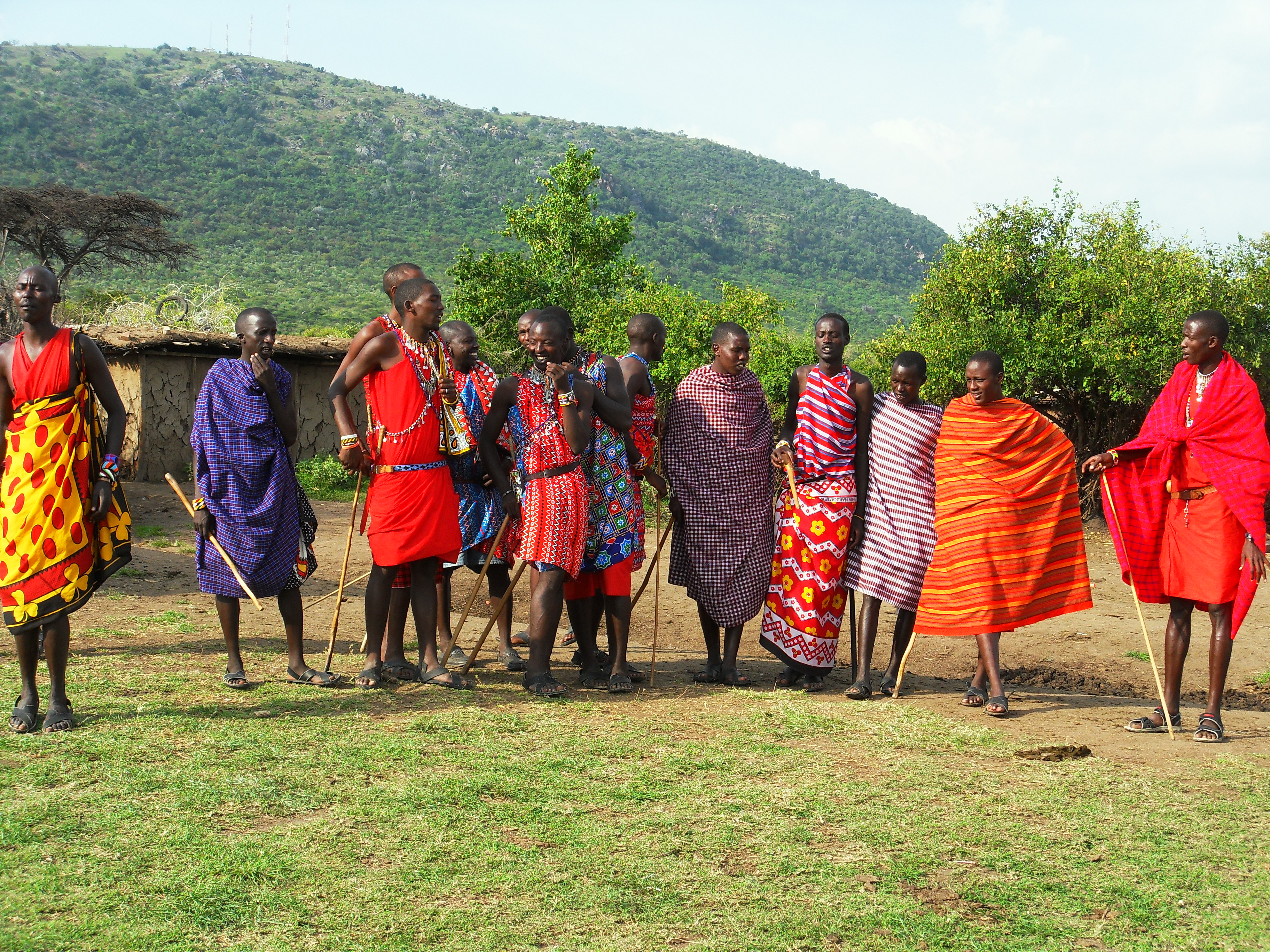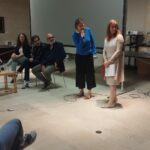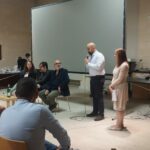Saulo Paul_Gilbert Harrison Muyumbu_Nairobi(Kenya)
 _Winner Africa Teller 2007.
_Winner Africa Teller 2007.
FOR FREDDY, A TROUBLED YOUNGMAN
His task in the world was simple – coming to you or me and convincing
us into buying this or that product. And he did it with skill, talent
and relish. And he was paid well for it. At the end of which, he would
rush back to his missed company – fat beer-party and gossip buddies,
with whom he would jump into a car belonging to one of them and go
some place to drink, get drunk, carouse and buy all the happiness they
thought they were getting. And this went on as years went by, Saulo’s
habit adding more weight and smearing sleekness all over him, such that
he seemed a man at comfort in this unpredictable world. Till one day
something occurred to jolt him roughly into a hasty calculation of his
life’s assets and liabilities.
They had jumped into one of their cars as usual and driven off at top
speed, their throats dry like maize husks after harvesting, and Saulo in
a rush to relieve his mind of that day’s particularly difficult customer.
“The man was like an Eskimo”, he told his empathic friends. “And mdosi
wanted me to sell a fridge to him”. And they roared with laughter at this
time-tested joke.
At which point he, who was the driver, forgot all about the happy gossip
the joke had elicited in his comfortable friends, veered off the welllit
highway and dying to get to their favourite joint as quickly as it was
humanly possible, he detoured into some dark, dingy, potholed and
threatening route cutting right through mediocre third world Nairobi.
“What!” His fat friends sat up, alarmed, gossip and jokes suspended in
mid air.
“A short cut”, he replied, busy at the wheel to avoid potholes.
“But this is dangerous!” and before he could re-utter “shortcut”, he expected
happened. Two brutal denizens of third world Nairobi swarmed
on them like some ill-tempered bees, live, up-close and personal. Too
late, the panicky driver tried to reverse his careless mistake. Alas, the
mistake turned costly, ghastly and tragic. The two intruders read the driver’s
intentions, and without thought to it let go a volley of gunfire that
did a number of things. It missed the driver but hit the man next to him,
who heavily slumped with a terrible groan unto the shell-shocked Saulo,
as the car came to a violent halt, its driver and tyres effectively deflated.
The ordeal then begun. Out of the initial five of them from first world
Nairobi, only Saulo was left with his life. And the life-preserving reason
one of the two vicious thugs accited for this lucky turn of events
was that vicious as he was, he had his pride and also believed in some
restraining god. For one, he never shot at a target twice. Secondly, if one
survived the first shot, it was god’s plan for you and as such who was
he, a mere though violent, big muscled and heavily scarred toothless thug
to interfere with this god’s redeeming plan for you? Therefore, albeit
naked, stripped of clothes and all, Saulo was left to live, but on condition
that he “shoots like a bullet” out of the infernal place and does not
look behind.
A beastly kick in his backside as he lingered with confusion and fear
propelled him into this run and into a new lease of life. And he ran like
a pursued prey, even though his breath came out in puffs of protest. He
discovered then that he was a fat man, a fact which had not occurred to
him before, and which perhaps had had no chance of manifesting itself
till now. And breathing laboriously but never running out of breath, and
with his heart thudding and his ears still ringing with the loud fatal shots
and still hearing the stomping of the gangsters’ feet, Saulo thought he
heard them shout at him even then to say his last prayers.
He increased pace, breathless as he was becoming. His body complained,
each organ of it functioning as though at war with the other,
but it never slackened its flight from the place of murder. It willingly
obeyed him, especially when his mind drifted to the vision of the scary
alternative he had just escaped from – a bloody, gapping hole in his forehead
as it happened to his four dead comrades. It was a disturbing vision,
a vision from hell, a vision of summary executions, cold blooded
murder and it chilled his numbed body further thinking of how it bore
witness to the cheapening of life. He ran away from it, determined to
escape from it and adding more fuel to his unprotesting legs, drawing
him more and more to a new road he had never travelled before, the road
to Damascus, as it turned out.
A week later or so, depressed Saulo found himself seated beside a psychiatrist.
“Call me Ananias”, the psychiatrist was attempting to put the
patient at ease. But the one thought on Saulo’s mind remained the worth
and purpose of life, even as he sought psychiatric rehabilitation.
“If it is so simple to die”, he wondered aloud, “what then is life?” And
psychiatrist Ananias saw this as a good uncomplicated patient, one with
all manifestations of paranoia and phobia over circumstances he had been
through in the recent past. He responded to Saulo’s puzzle as professionally
as his profession could allow, telling Saulo that such a distressing
ordeal would remain haunting on his memory for sometime and let him
accept it blah, blah, blah…, but Saulo was looking for an answer for what
life was truly worth, which was perhaps beyond the calling and training
of good psychiatrist Ananias.
Saulo forgot about Ananias and drifted more and more into something
akin to a religious interrogation of what life was. His remaining friends
inevitably became baffled at Saulo’s transformed comportment.
“His mode of eatin and dressin’z changed”, they gossiped in their borrowed
accents behind his back. “Even his talkin. The niggaz becomin
sorta of religious fanatic, men!”, they whispered with anxiety.
But they let him be. They reasoned that it was only proper for a man
who had just been plucked and snatched from the very jaws of death to
be left alone to take stock of his life and make peace with the almighty.
He who had rescued him. They presumed it a fleeting phase which
would eventually wear thin. But Saulo on his part was too engaged, attention
profoundly drawn elsewhere to notice their gossip. In fact, he
avoided them when he shortly afterwards noticed their concern over him,
seeking to escape from their hold on him, their consumerist vanity and
to invest his life with more purposefulness. He found out now that their
talk was too inadequate for him, since to them life never went beyond
the epicurean orbit of beer, raunchy gossip, sex, partying and nyama
choma; now an existence that Saulo saw as a great persecution of life.
He even changed his name from the casual, carefree, happy-go-lucky
Saulo they had given him, seeing such monikers unfit on his new person.
How nicknames stick, he gasped, as he took on to tell whoever cared
to listen that his two true ad real names were Paul Mmaisha and that
Saulo was a corruption of his real name, which he undertook to clear
and straighten. And unlike never before, Paul Mmanisha now meditated,
Paul contemplated, Paul fasted, Paul asked questions, Paul prayed,
Paul wondered at what life was.
If just a piece of metal, he reviewed in his mind, could sniff life, sleekness
and comfort out of my four whole friends at a sound of a mere bang,
what truly is life? And he put this question to everyone. And the answers
he received left him with more bewilderment.
“Confess!”, he always recalled with a start the vicious thugs barking at
him, as he knelt down subdued during the ordeal. “Say your last prayers!”
And Paul had trembled, unable to arrange his mind to recall anything
he had done that he could hold out in pride at the threshold of death.
But now he knew. It wasn’t just the fear of the thugs that had made his
mind blank – oh no. Away from the thugs and the ordeal, he knew that
there was nothing but emptiness. He just existed, like a beast, drawing
good from earth to feed his body with it, but nothing beyond this. Nothing
given back to earth. A parasite on good earth. Frittering and nibbling
away precious good, life and time in purposelessness…
“If you were to die today”, some religious personality he spoke to once
posed to him, “what would you say you have left down here on earth?”
And he merely saw mountains of faeces, rivers of beer-laced urine,
used condoms and attire, hours running into days into weeks into months
into years of empty gossip and vacuous world gazing, and nothing beside,
which really he could say was his bequest to earth. Yet he inhabited
the one earth, breathed the same air and ate the same potentialities
of earth as the Nelson Mandelas, Alexander Bells, Mother Teresas,
Wole Soyinkas – great earthlings that earth herself could stand up in any
planetary crowd, thrust her chest forward and with pride, boast out that
“Look, here are my purposeful sons and daughters”.
In this self-castigating mindset then Paul became a man seeking purpose
in life. It inevitably came to pass that he should fall upon justice,
fairness, sympathy, kindness, right, equality; concepts and words which
he found invariably in the literature he came to read as he sought purpose.
All the great books of life introduced the words to him. He came
to believe that they were key to life, since they filled every book of life,
and he took them on and filled them in his mouth such that he spewed
them out at everyone, given any slight opportunity.
Paul estranged his hollow erstwhile friends further with the gratuitous
spew of these words. So much so that a friend would, for the sake of
old times, urge him “Maze Saulo, shall we go and have one each, on
me?”, but Paul would calmly reject the offer, asking in solemn reply.
“What right have I to indulge in reveling in beer when some poor soul
somewhere cannot afford a meal worth less than that beer?”
“Now what?!”, the miffed vacuous friend would explode and flee before
Paul loosened the tongue further to spew some more to disturb the
emptiness in his head. Some eventual day, however, the consequences
of Paul’s new habit caught up with him. He spewed the words in the
wrong context. His boss had just called them in his office for an update
of activities in the firm. On being asked to say something, Paul let loose
a volley of the words, in total disregard to relevance and agenda of that
morning. “What?” His flabbergasted boss gasped like the rest of the assembled
congregation, their mouths agape with surprise.
“Justice, fairness, equality, right, purpose!” Paul repeated with increasing
agitation.
“You have joined trade unionism”, the paranoid boss concluded. A hasty
board meeting was convened as Paul was quarantined from the rest of
his workmates like some infectious leper in the days of old. And before
the day was midway, Paul’s services at the firm were alleged to be no
longer desired by some official letter addressed to him. And so was his
simple task in the world. He prepared himself for much more.









